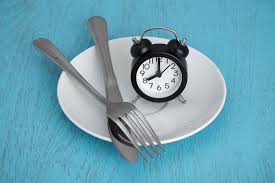
Breaking News
 Sunday FULL SHOW: Newly Released & Verified Epstein Files Confirm Globalists Engaged...
Sunday FULL SHOW: Newly Released & Verified Epstein Files Confirm Globalists Engaged...
 Fans Bash Bad Bunny's 'Boring' Super Bowl Halftime Show, Slam Spanish Language Performan
Fans Bash Bad Bunny's 'Boring' Super Bowl Halftime Show, Slam Spanish Language Performan
 Trump Admin Refuses To Comply With Immigration Court Order
Trump Admin Refuses To Comply With Immigration Court Order
 U.S. Government Takes Control of $400M in Bitcoin, Assets Tied to Helix Mixer
U.S. Government Takes Control of $400M in Bitcoin, Assets Tied to Helix Mixer
Top Tech News
 SpaceX Authorized to Increase High Speed Internet Download Speeds 5X Through 2026
SpaceX Authorized to Increase High Speed Internet Download Speeds 5X Through 2026
 Space AI is the Key to the Technological Singularity
Space AI is the Key to the Technological Singularity
 Velocitor X-1 eVTOL could be beating the traffic in just a year
Velocitor X-1 eVTOL could be beating the traffic in just a year
 Starlink smasher? China claims world's best high-powered microwave weapon
Starlink smasher? China claims world's best high-powered microwave weapon
 Wood scraps turn 'useless' desert sand into concrete
Wood scraps turn 'useless' desert sand into concrete
 Let's Do a Detailed Review of Zorin -- Is This Good for Ex-Windows Users?
Let's Do a Detailed Review of Zorin -- Is This Good for Ex-Windows Users?
 The World's First Sodium-Ion Battery EV Is A Winter Range Monster
The World's First Sodium-Ion Battery EV Is A Winter Range Monster
 China's CATL 5C Battery Breakthrough will Make Most Combustion Engine Vehicles OBSOLETE
China's CATL 5C Battery Breakthrough will Make Most Combustion Engine Vehicles OBSOLETE
 Study Shows Vaporizing E-Waste Makes it Easy to Recover Precious Metals at 13-Times Lower Costs
Study Shows Vaporizing E-Waste Makes it Easy to Recover Precious Metals at 13-Times Lower Costs
Fasting-Mimicking Diet Shown to Be 'Safe and Effective Supplement' to Chemotherapy in...

Preclinical evidence suggests that short-term fasting and diets that mimic fasting can protect healthy cells against chemotherapy, while simultaneously rendering cancer cells more vulnerable to the treatment. However, clinical research evaluating the potential of short-term fasting in patients with cancer is still in its infancy.
This was shown in a new paper published last week in Nature: Communications by Dutch scientists from Leiden who looked at fasting-mimicking diets in patients undergoing chemotherapy for the most common form of breast cancer.
In the trial conducted by Dr. Judith Kroep and colleagues, 129 patients with HER2-negative stage II/III breast cancer followed either a fasting-mimicking diet or their regular diet for 3 days prior to and during neoadjuvant chemotherapy (treatment given as a first step to shrink a tumor before surgery).

 Smart dust technology...
Smart dust technology...

